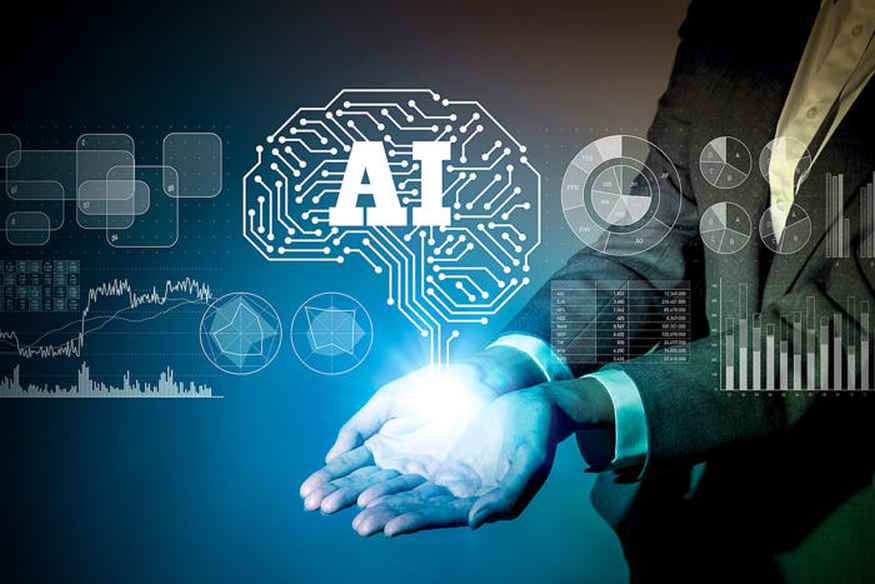How Online Marketplaces Can Use AI to Grow Sales

E-commerce has long become the primary space for people to shop, search for various products and services, and learn what’s new on the market today. Customers have been using online marketplaces, like Amazon, Etsy, and Walmart for years now. Most of these popular marketplaces use Artificial Intelligence (AI) to simplify the operations on their website, making the shopping experience a simpler and more enjoyable process.
Artificial Intelligence is a form of computer intelligence created to simulate human thinking processes. Such intelligent machines can mimic humans in problem-solving, analyzing, reacting, and recognizing issues. AI marketplaces collect data about products, customers, and their behavior, as well as common transactions and site competitors. Furthermore, the technology analyzes the insights and shapes enhanced selling approaches and business operations strategies.
Overall, AI technology in marketplaces serves to enhance the shopping experience, which ultimately means higher profits and a more loyal customer base for the website. See what unique features, new approaches, and advanced technological solutions AI has brought to eCommerce.
Types of Marketplaces: B2B, B2C, C2C
Depending on their target audience and business model, marketplace platforms can be divided into three types:
-
B2B (Business-to-business)
A B2B digital marketplace conducts operations among businesses only. Hence, one market space cooperates only with companies in certain industries. Global Market is, perhaps, the most recognizable B2B platform today.
-
B2C (business-to-customer)
A B2C model supports interactions between businesses and individual customers. Here, entrepreneurs can sell their services and products to customers. Usually, a single online marketplace can have multiple vendors to offer all kinds of services to customers.
Amazon, AliExpress, and eBay are the most prominent eCommerce platforms in this area. However, such services as UpWork and Booking.com can also fall under the B2C category.
-
C2C (customer-to-customer)
This model encourages cooperation between private individuals, with no businesses involved. Here, customers go to virtual marketplaces to trade and offer services without high administrative fees. A big share of the mobile economy is based on the C2C model, including applications like Airbnb, Uber, Lift, Craigslist, and Etsy.
How AI is Revolutionizing Marketplaces
Artificial Intelligent technology can advance numerous industries. Let’s learn how AI marketplace development revolutionized selling platforms. So, here are eight ways in which AI has changed eCommerce.
-
Increasing Relevance by Customer Segmentation
All eCommerce platforms deal with vast flows of customers. Successfully communicating to such a crowd will be unproductive, to say the least. Yet, efficient manual segmentation also remains virtually impossible. It will require a large amount of human effort and time while remaining prone to errors, false identification, and biases.
Fortunately, AI-driven marketplaces can break down their customer flows by specific groups of buyers within minutes. Each such group will have different marketing approaches, communication patterns, and product propositions.
For instance, AI in b2b eCommerce can determine which business sector is most likely to be interested in and purchase a particular product. Thus, it can select a group of potential buyers and approach them with well-crafted targeted marketing messages.
-
AI-Powered Ad Automation for Sellers
Digital marketing is a powerful, yet time-consuming skill to master. Fortunately, AI-powered marketplaces can start a digital advertising campaign across all popular platforms with just one click. AI algorithms can determine ad placement, targeted audience, its responses, and calculate the effectiveness of each campaign. Such tools can also automatically stop advertisements for products that are out of stock or replace campaigns depending on the audiences’ responses.
-
Anticipating Buyer Behavior through Pattern Recognition
Companies using AI can enhance business optimization and improve customers’ experience via pattern recognition. Such tools allow businesses to discover common features in customers’ behavior, including their satisfaction with the services or available products on the marketplace. Later these insights help refine search tools, improve recommendations, and build a more loyal custom base.
-
Ecommerce AI Chatbot
People are getting more and more comfortable with online chatbots. Every AI chatbot for eCommerce can advise customers about the newest trends, help them find the items they require, or inform them about ongoing or upcoming sales and discounts. Such a function ensures a convenient shopping experience while decreasing the pressure from the support team. Moreover, AI chatbots for selling eCommerce reduce any human error and cut down on the waiting time per each request.
-
Providing Shopping Recommendations with AI
AI personalization eCommerce processes start from here. The technology’s power to collect data, predict customers’ behavior, and find patterns in their shopping, allows it to form well-suited recommendations for the next purchase. It provides customers with the best options, based on the analysis of their previous searches, wishlists, ratings, and purchases.
In fact, some platforms can also analyze customers of similar tastes and predict behavioral changes in customers within one segment. As a result, a well-fitted AI recommendation engine delivers almost half of the total market sales.
-
Enhancing Customer Engagement via Sentiment Analysis
Understanding the real opinion of the customers, including the negative to positive reviews ratio can help businesses enhance their services and products. Artificial Intelligence marketplaces can screen the Internet in search of any mentionings of the brand and its product.
In short, such a method is called sentiment analysis. Its purpose is to find all the valid data, such as opinions and reviews online. Such tactics are based on extracting relative consumer information across various online platforms.
In the end, a business can recreate the original, unbiased customer’s voice about its brand. The gained insights help refine the brand appeal by including consumers’ wishes in the development processes and delivering enhanced final products.
-
Accelerating Path to Purchase Through Intelligent Search
People prefer buying things online due to its convenience, accessibility, and easy experience. An AI marketplace platform can enhance those advantages by refining its marketplace search algorithms. Such a feature helps connect customers with just the right type of product or service they desire within seconds.
In fact, sometimes, these algorithms can predict what buyers need before they do. AI technology analyzes previous requests and purchases to offer the best-suited options to optimize the search process from the very first request.
-
Reducing Friction with Anomaly Detection
No digital selling platform is safe from glitches and errors. Products can be put on at the wrong prices, counterfeit items can be offered, or unavailable services purchased at any time. Fortunately, AI eCommerce platforms have a fast way of determining those glitches and finding solutions.
AI tools start by analyzing normal patterns within a platform. Hence, they can later spot anything that seems abnormal according to the gained insight. Next, these algorithms flag the activity to alert the site’s authorities and score the issue based on urgency.
Such a fast and efficient reaction to any site’s abnormalities significantly decreases profit losses and earns customers’ trust.
Bottom Line
AI marketplace development is changing the world of eCommerce. Today, online selling platforms are much faster, more convenient, and more efficient. AI’s ability to gather unique insight into the customers’ behavior and businesses’ marketplace and operations can achieve personalized approaches in sales, reduce any operational errors, and improve decision-making. Though, such successes are only the beginning of eCommerce and its total transformation under the influence of AI technologies.

